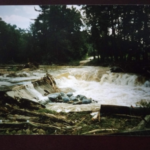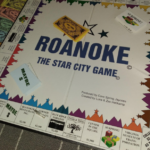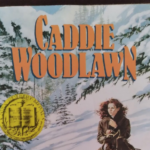Illustrious Roanokers, Part 4
In 1907, scarcely a generation removed from the Civil War, the South was marked by widespread racial discrimination, Jim Crow laws that disenfranchised black voters, and constitutionally enshrined segregation through the “separate but equal” doctrine (which in practice established anything but equality).
One hundred years later, in 2007, the final Harry Potter book was published, the first iPhone arrived on the market, Beyonce released the number 1 hit single, and the nation’s first black president had just launched his first campaign.
The life of one of the nation’s greatest civil rights leaders spanned that century. Over the course of his 100-year life, many great social causes for which he tirelessly worked became reality. This statesman was also one of Roanoke’s favorite sons:
Oliver White Hill (1907 – 2007)
Born in 1907 in Richmond, Oliver Hill spent much of his childhood and young adult years in Roanoke, and though his most famous work was done in Richmond, he regarded Roanoke as his childhood home. His parents lived and worked at the Homestead Resort in Hot Springs, but because of the lack of educational opportunity there, young Oliver grew up in Roanoke, cared for by family friends. Here he would stay until his high school years, attending Harrison School, at which Lucy Addison – another famous Roanoke African American – was the principal.
Since “separate but equal” meant that Roanoke had no high schools open to blacks, Oliver left Roanoke during his high school and college years. Inspired by his uncle, Oliver went on to law school at Howard University, where he graduated second in his class behind his friend Thurgood Marshall (who would later become the first African-American Supreme Court justice).
Oliver returned to Roanoke to start his law practice. Unfortunately, he did not meet with much success during these Depression years, and eventually he returned to Richmond, his wife’s hometown. It was there that Oliver was to truly make a name for himself. Over the next decades, he battled inequality in school districts all over Virginia, winning improved conditions for both black teachers and black students. During World War II, Oliver served in an engineering unit in the Army, supported the D-Day Normandy invasion, and continued his service in Europe until V-E Day in 1945.
Back at his law practice, Oliver worked on increasingly high profile civil rights cases, as well as becoming Richmond’s first black City Council member and serving on an anti-discrimination committee in the Truman administration. His legal successes did not go unnoticed, as he was rewarded with constant death threats and a cross-burning on his lawn.
But the pinnacle of Oliver’s career came in his court battle with Prince Edward County. Terrible conditions at the black high school led to student protests and a legal case led by Oliver and his law partner. Rejected by the US District Court, the case was appealed to the Supreme Court, finally leading to the landmark ruling of Brown v. Board of Education which declared segregation in public schools unconstitutional.
Sadly, the fallout from the ruling was long and damaging. The segregationist “Massive Resistance” movement in Virginia led to continued educational segregation for several years. With approval of the Virginia legislature, the schools in certain districts actually closed rather than integrating; in Prince Edward County, public schools remained closed for 5 full years, with white students attending private “segregation academies” while blacks were forced to go elsewhere for education. Finally, after continuing legal battles and further Supreme Court rulings, fully desegregated public schools became a reality in Virginia.
Oliver would go on working in private practice and for the Federal Housing Administration, fighting for civil rights and social justice. Finally in 1998, at the age of 91 (ninety-one!), Oliver retired, and the year following he received the Presidential Medal of Freedom. Over the course of his 65 year career, the socio-political landscape had changed dramatically for African Americans, in no small part due to his own efforts.
Though he died in 2007 at one hundred years of age, Oliver’s legacy lives on, especially here in Roanoke. His childhood home at 401 Gilmer Ave. N.W. displays a memorial to his life. His work is carried on by the Oliver Hill Foundation, which is dedicated to the causes of social justice and education. Among other initiatives, the Foundation supports an after-school mentoring program and an internship program for law students.
Last year, the Roanoke City Courthouse was renamed Oliver W. Hill Justice Center – another commemoration of a life dedicated to freedom and justice for all.
More from Tim Carr
- Virginia’s Native Allspice

- Wet and Wicked Weather in Western Virginia – Part 3

- Virginia’s Earth-shaking Events

- Roanoke – the Star City Game

- Saving the Planet, one Semi-Immortal Toyota at a time

- Chic(k) Lifestyle – Part 1
- Books to Read Aloud – Caddie Woodlawn

- 5 Random Items We No Longer Want To Do Without





